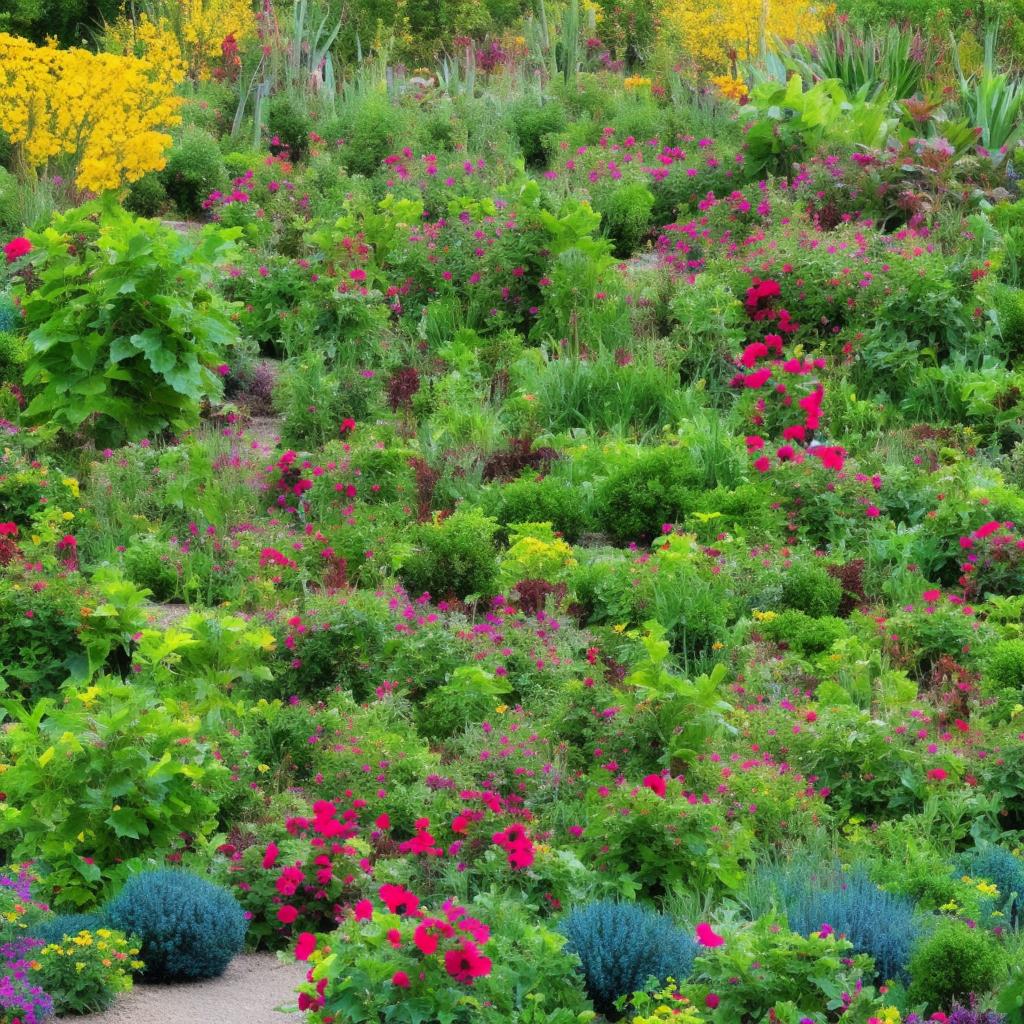In a world where sustainability is more important than ever, the use of native plants in gardening has become a vital practice. These plants, inherently adapted to their local environment, play a crucial role in maintaining ecological balance and promoting biodiversity. Let’s delve deeper into the significant role native plants play in sustainable gardening practices.
– Harnessing the Power of Native Plants in Sustainable Gardening
Native plants play a crucial role in sustainable gardening practices due to their ability to thrive in their natural environment without the need for excessive water, fertilizers, or pesticides. By incorporating native plants into your garden, you can create a habitat that supports local wildlife, such as pollinators and birds, while reducing the overall maintenance required for your outdoor space. These plants have adapted to the local climate and soil conditions, making them well-suited for a sustainable and resilient garden.
Some benefits of harnessing the power of native plants in sustainable gardening include:
- Water Conservation: Native plants require less water once established, reducing the need for irrigation.
- Biodiversity: By planting a variety of native species, you can promote biodiversity and create a healthier ecosystem in your garden.
- Soil Health: Native plants improve soil health by reducing erosion, increasing nutrient cycling, and promoting beneficial soil microorganisms.
– Promoting Biodiversity and Ecological Balance through Native Flora
Native plants play a crucial role in maintaining biodiversity and ecological balance in our gardens. By incorporating native flora into our landscaping, we not only support local wildlife but also create a more sustainable environment for future generations. Native plants are adapted to the local climate and soil conditions, requiring less water, fertilizer, and maintenance compared to non-native species.
When planning a sustainable garden, consider planting a variety of native species to attract pollinators, birds, and other beneficial wildlife. By creating a diverse ecosystem in your backyard, you can help promote a healthy balance between plant and animal populations. Additionally, native plants can help prevent soil erosion, filter pollutants, and even reduce the need for chemical pesticides.
– Selecting the Right Native Plants for Your Garden
Nature has provided us with a vast array of beautiful and diverse native plants that are not only aesthetically pleasing but also play a crucial role in sustainable gardening practices. By incorporating native plants into your garden, you can create a thriving ecosystem that supports local wildlife and helps to conserve water and resources. These plants have evolved to thrive in your specific region, making them well-suited to your climate and soil conditions.
When selecting native plants for your garden, it’s important to consider factors such as sunlight requirements, soil pH, and water needs. By choosing the right plants for your specific conditions, you can create a low-maintenance garden that requires less water and fertilizer. Native plants are also more resistant to pests and diseases, reducing the need for harmful chemical treatments. By prioritizing native plants in your garden design, you can create a beautiful and sustainable outdoor space that benefits both you and the environment.
– Cultivating Resilient Ecosystems with Indigenous Flora
Native plants play a critical role in sustainable gardening practices, as they are well-adapted to local environmental conditions and provide essential habitat for native wildlife. By incorporating indigenous flora into our gardens, we can cultivate resilient ecosystems that are better equipped to withstand changes in climate and other environmental stressors. These plants have evolved over thousands of years to thrive in their specific regions, making them an invaluable resource for creating biodiverse and ecologically balanced landscapes.
When we prioritize using native plants in our gardens, we not only support the health of our local ecosystems but also reduce the need for excessive watering, fertilizers, and pesticides. This leads to more sustainable gardening practices that benefit the environment and promote a healthier balance between humans and nature. By celebrating the beauty and resilience of indigenous flora, we can create vibrant and thriving garden spaces that are both visually stunning and ecologically sound.
In Summary
incorporating native plants into your garden not only enhances its beauty and diversity, but also plays a crucial role in maintaining a sustainable ecosystem. By supporting local wildlife, conserving water, and reducing maintenance costs, native plants offer a myriad of benefits that go beyond aesthetics. So the next time you’re planning your garden, consider the valuable role that native plants can play in creating a more sustainable and vibrant outdoor space. Happy gardening!




